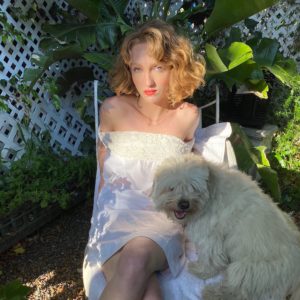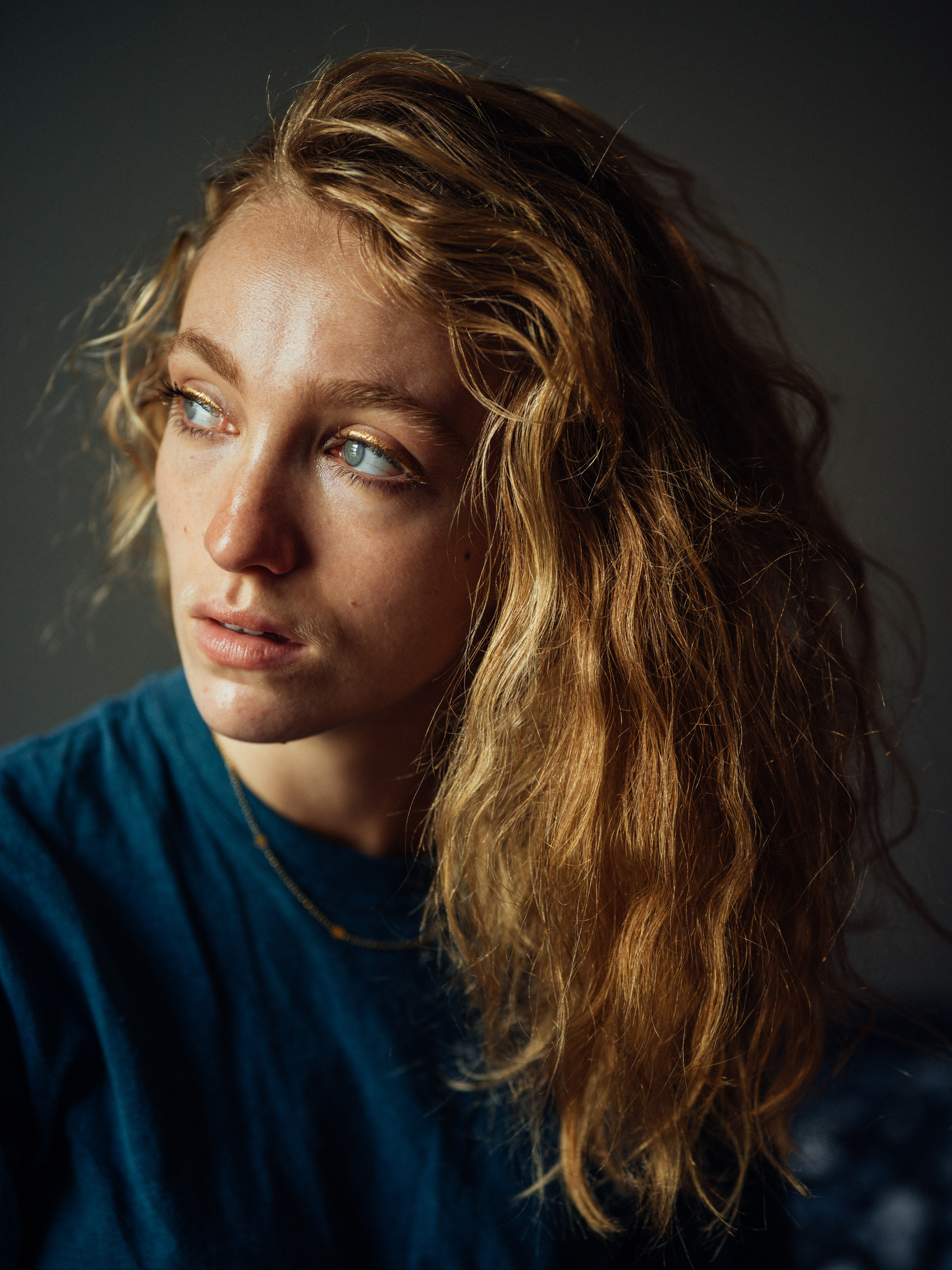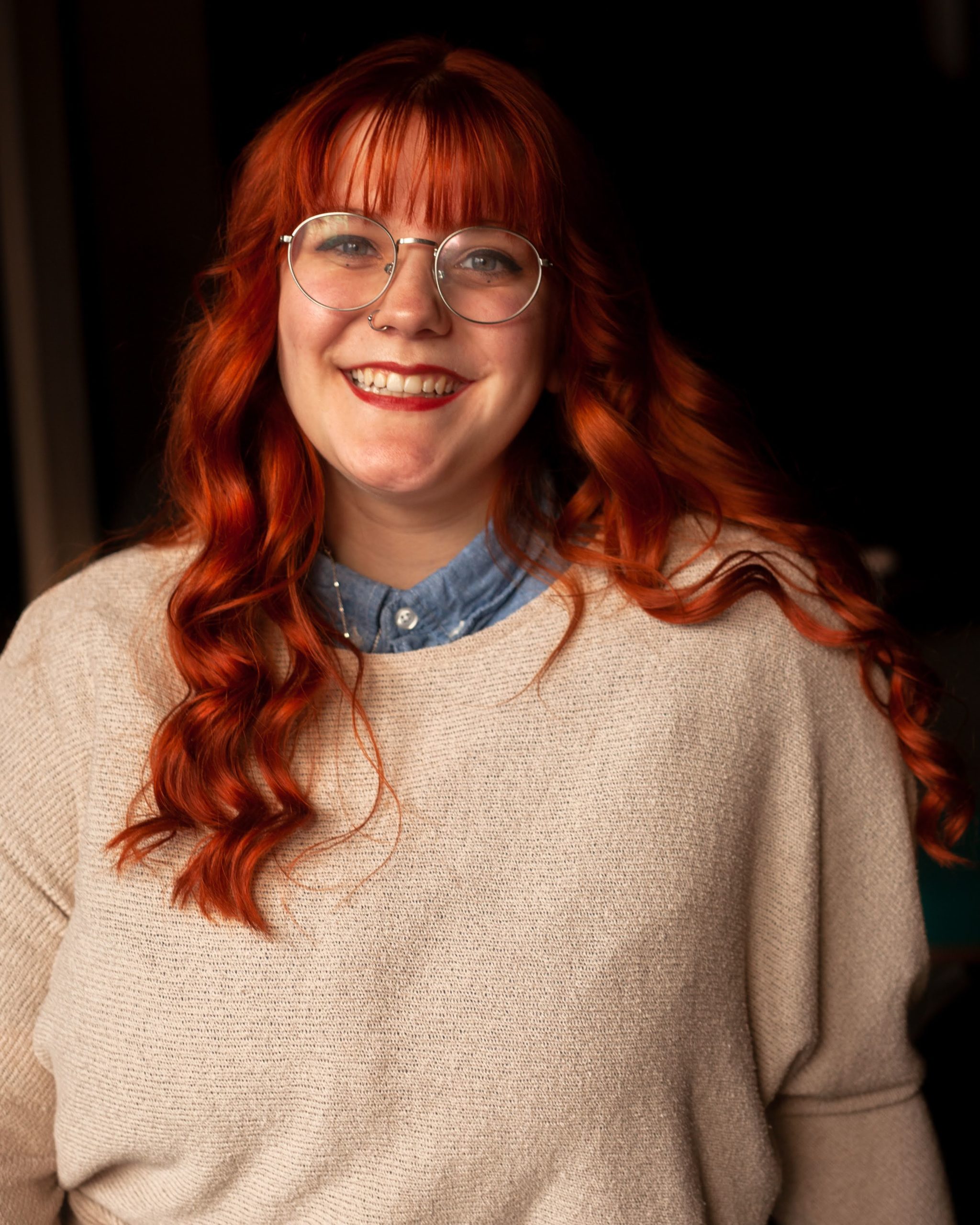Rhiannon McGavin is a glowing poet from Hollywood and recent graduate from UCLA. Being a writer and performer in the time of a pandemic has drastically shifted the way she interacts with the world and her community. Back in May, I got the opportunity to talk to Rhiannon about communication, self-care, art, and rest. And while life seems very different right now to the life we had back in May, the insight and care Rhiannon had to share has not aged a day.

TMP: What have been the major changes for you and how you communicate with your people these days?
RM: The main thing for me has been trying to stay connected by checking in constantly. In just asking, “Hey, what did you cook today? Did you eat? Have you seen these memes?” I am able to be a part of someone’s life still even if I can’t be there physically.
TMP: I imagine those check-ins have been increasingly honest as the physical distancing continues.
RM: They have. And I am lucky enough to live relatively close to friends geographically. I can take my bicycle to take deliveries of treats over to someone’s home and be there for them in a different physical sense.
TMP: I love the idea of making deliveries to your people to give an extra sense of care and thoughtfulness to their days. What do you typically include in your deliveries?
RM: Yes! It’s usually something like tea, medicine, soup for sick friends, baked desserts. I just got a kosher lemon bar recipe, so I’m excited to use that. Next week, I’ll be doing more deliveries while still maintaining hygienic anti-viral measures.
TMP: Well, good luck with those deliveries! I hope you are able to safely provide this unique comfort to your friends. I want to talk about poetry. You are an award-winning poet who is very public about your art and your process. I understand you’ve been teaching poetry workshops in this pandemic. Is that right?
RM: Yes! I have been teaching workshops with Not A Cult. Media where there have also been livestream poetry readings and whatnot.
TMP: Livestream readings sound intimidating!
RM: Livestreams can definitely be intimidating, but this is what we can do right now.
TMP: Tell me about the workshops you’ve been leading!
RM: My workshops have been designed as trauma-informed poetry workshops. This doesn’t mean that people share their deepest secrets or vulnerabilities. Instead, I incorporate therapeutic practices to the exercises to keep it safe and welcoming. This has been a usual practice of mine but now, in this you know pandemic, I’m doubling down on that.
TMP: I love that so much. Say more.
RM: Trauma-informed does not mean unhealthy probing of secrets. This is trauma-informed, not trauma centered. We collectively practice deep breathing between each poem, for instance. It’s not writing through or about trauma but using the tools that therapy presents and incorporating it into a writing practice. The largest class I’ve taught was online recently. The discussion was beautiful and felt so comfortable even though there were so many of us on that screen.
TMP: I got to watch some of those discussions this morning. You are so skilled at connecting with people online! That sounds like it can be exhausting, though, to be teaching and working with large groups right now. I’m sure you’ve heard people talking about how this pandemic, this quarantine is the perfect time to make art with no excuses not to. How have you felt about that sentiment?
RM: It’s silly. That idea is silly! Personally, I’m doing the bare minimum because I know that I push myself a lot in any other time. I’d be trying to do too many things without letting myself acknowledge that I am busy. Now, I feel that it is a health risk for me to be overstressed.
TMP: Yes! I love that you are being intentional about your rest right now. It’s my hope that other people our age can be intentional about how they spend and save their energy.
RM: Right, and this just goes back to the idea that good art only comes from struggling. The idea is just annoying and harmful, you know? I can’t write a beautiful sonnet while I’m running for my life because I have to focus on running for my life. Once I actually get to a place where I can rest and take care of myself as a person, then I can begin to think about sonnets.
TMP: That’s a statement that needs to be read in every artist space at least once a day.
RM: I mean it!

TMP: Now, I want to know more about your relationships and rituals. I’m guessing that many of your typical activities that you do with your friends are off-limits right now. So how are you and your relationships adapting to this new world we’re in?
RM: Facetiming is a great alternative to sitting on your friend’s counter to gossip. I was in a long-distance relationship for a while, so I feel more prepared for this moment because of that.
TMP: How did your practices help build your relationship then?
RM: He’s with me now! So I think it worked. But really, I mean, connecting isn’t all the more difficult right now. It’s just different. Try cooking the same recipe over a video call with your best friend and eat it together. To really get that sensation of closeness, I like looking for warm things: hot baths, sitting with laundry, and being outside in Los Angeles.
TMP: I love a good cup of hot tea in any season. It’s always like I’m holding someone’s hand, even if I am all alone.
RM: It’s not hard to find warm things in LA.
TMP: I’d figure! With connection and conversation being mostly digital right now, how are you balancing out screen time in a way that’s conducive to your mental wellness?
RM: Before quarantine, I would only go online on the weekends, and I would set time limits for internet access. Twitter is not great for writing a thesis.
TMP: I hear you! I also just graduated with my Master’s degree, so I am right there with you.
RM: Yes! Amid the quarantine, I have no screen time limits. I’ve posted more often in the last month than I did last year. I have to be careful about what I’m taking in right now, though. It’s not fair to myself to read people’s unfiltered emotions and thoughts all day without leaving room in my head for what I’m actually feeling.
TMP: Curating the posts and content you consume from social media is undoubtedly self-preservation. Whose posts do you look for right now?
RM: I look up to poets like lady poets that foster community online well, like Yesika Salgado, Olivia Gatwood, Melissa Lozada-Oliva. They carry themselves very well on the internet, and they host beautiful conversations with their readers. Keeping up with their work feels good and normal.
TMP: Is this a part of the way you’re maintaining a sense of “normalcy” with each day being different?
RM: Well when quarantine started, I had been working on my thesis and staying home anyway. I was at the end of a big intense project that got me into a routine of waking up and doing just a little something every day. Now, I’m working on my next book, and the deadline hasn’t changed due to the pandemic. Personally, this isn’t all that new. I am no stranger to having to maintain normalcy during a crisis. In terms of being productive during quarantine, though, I will always say that you have permission to ignore any advocate of productivity.
TMP: Art can always come later if self-care comes first. I wonder how you’re managing to keep this routine so far into these worldwide changes.
RM: Balance! This time has really irrevocably confirmed that individualism is not an appropriate ideology. Individual practices of looking out for oneself are not biologically, socially valid. We are all one social body. If I help my neighbor, my neighbor will help me. How to orient myself towards other people, to a larger community, needs to be in a way that will help everyone get through. We will only get through this through solidarity and mutual aid on micro and macro levels.
TMP: No doubt on that. I am so grateful for your voice in this conversation. You have such a valuable perspective on how to care and keep close at a distance, and I am so glad to talk to you about it.
RM: Of course! Connection doesn’t have to be this big, elaborate thing. Book clubs are great and feel like home, especially when you join from your bedroom. Also on a personal note, it’s so great that Jewish food revolves around a poverty pantry. I have made so much kugel recently.
TMP: Mmm, I am definitely making one this week, now that you mention it. Seriously, though, thank you from the bottom of my heart. Do you have any final thoughts to end our conversation?
RM: Social distancing is not an effective term. Call it “stay at home and only leave for your groceries.” You can still connect and be close with a person even if you can’t physically be with them. Distance can be miserable but knowing that someone is there on the other side of the phone helps a lot.

Rhiannon McGavin and Ariela Barer produced a video for one of Rhiannon’s poems previously, exploring friendship between girls and survival. To view “Things that could Happen to a Girl wearing Jeans,” please visit https://www.youtube.com/watch?




















